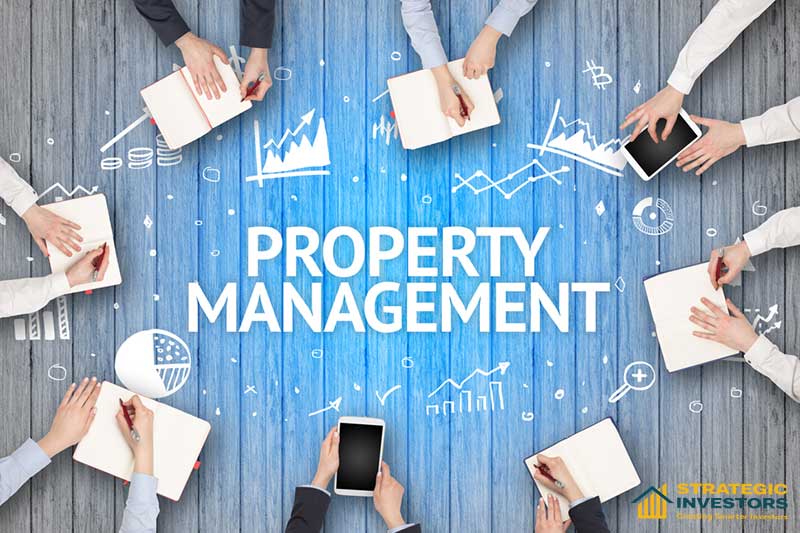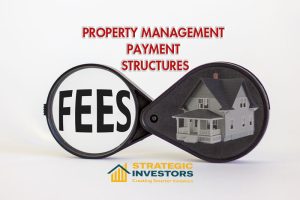
Did you know that successful property management can significantly impact the value and return on your investment? As the real estate market evolves, so do the complexities of managing rental properties. In this comprehensive guide, we’ll explore the role of property managers, the types of property management, and the pros and cons of hiring a property manager.
We’ll also delve into licensing requirements, selecting the right property manager, understanding fees and payment structures, technology advancements, legal aspects, and finally, tips for successful property management. Buckle up and let’s dive in!
Key Takeaways
- Property management is an essential part of real estate investment, involving tasks such as tenant screening and rent collection.
- Hiring a property manager can offer numerous benefits but may come with additional costs and risks.
- Property managers must understand legal requirements to ensure successful operations, including landlord-tenant laws, fair housing regulations, and preventative maintenance practices.
Understanding Property Management

Leveraging the expertise of property management firms allows investors to concentrate on portfolio growth and strategic decisions, leaving the daily operations of managing investment properties to professional property managers.
Role of Property Managers
An experienced property manager wears many hats in their quest to successfully manage rental properties. Some of their responsibilities include:
- Finding and screening tenants
- Collecting rent
- Handling maintenance requests
- Managing leases and contracts
- Conducting property inspections
- Dealing with tenant complaints and disputes
- Ensuring compliance with local laws and regulations
Property managers, working for a property management company, are the glue that keeps everything together.
What distinguishes a top-notch property manager? The answer lies in effective communication. A good property manager:
- Builds rapport with tenants
- Responds promptly to their concerns
- Excels at tenant screening, conducting rental history checks, and employment verifications to reduce the risk of problematic tenants.
They also have an in-depth understanding of the local market, which allows them to set competitive rental rates while adeptly maneuvering through the intricacies of national landlord-tenant laws.
Types of Property Management
Just as diverse as the real estate industry itself, property management comes in various forms. Residential property management, for instance, focuses on managing properties used for private or residential purposes. In some regions, a property management license may be required to legally manage these properties.
On the other hand, commercial property management deals with overseeing commercial spaces leased to tenants. These properties serve as locations for businesses to operate and generate income. For owners of either residential or commercial properties, grasping the subtleties of different types of property management is key to the prosperity of your investments.
Hiring a Property Manager: Pros and Cons

Let’s delve deeper into these advantages and disadvantages.
Utilizing these sources keeps investors updated about recent market trends, enabling them to make decisions based on data.
Benefits of Hiring a Property Manager
One of the most significant advantages of hiring a property manager is the ability to save time and effort. Property managers take on the responsibility of managing the property, including rent collection, tenant inquiries, and maintenance requests. Their professional tenant management skills ensure that your property is occupied by reliable tenants who consistently pay rent on time and adhere to lease terms.
Moreover, property managers possess a deep knowledge of legal requirements, aiding you in maneuvering through the constantly evolving world of landlord-tenant laws and fair housing regulations.
Potential Drawbacks
On the flip side, hiring a property manager may come with additional costs. Some of these costs include:
- An initial setup fee
- A monthly management fee
- A tenant-placement fee
- A maintenance fee
- An eviction fee
- An early-termination fee
These fees are applicable when needed in different scenarios.
Moreover, if your property manager lacks experience in tenant screening and tenancy laws, you may face the risks of inadequate compliance and revenue loss. It is imperative to accurately assess the advantages and disadvantages before making the decision to hire a property manager for your investment property.
Licensing and Certification Requirements

Grasping these requirements is fundamental to guarantee that your property manager operates within legal parameters and upholds the loftiest industry standards.
State-Specific Requirements
State-specific requirements for property managers and real estate agents may include obtaining a real estate broker’s license or registering with relevant regulatory bodies. For example, in Florida, property managers must possess a valid real estate broker’s license to operate.
Since July 2012, the Property Services Regulatory Authority of Ireland requires all property service providers operating in the Republic of Ireland to be registered and licensed. This includes property management companies.
Gaining a familiarity with the specific requirements in your region is crucial to ensure that your property manager abides by local regulations.
Professional Designations
Professional designations can be obtained through various associations and organizations, such as the Institute of Real Estate Management (IREM), the National Association of Residential Property Managers (NARPM), and the National Apartment Association (NAA).
Acquiring these designations can help property managers demonstrate their expertise and trustworthiness to prospective clients, as well as grant them access to exclusive resources and networking opportunities.
Selecting the Right Property Manager

So, what should you take into account when choosing a property manager?
Evaluating Experience and Reputation
When assessing a property manager’s experience, consider their track record in managing properties similar to yours and their knowledge of the local market. Research online reviews and testimonials from both landlords and tenants to gauge their reputation, focusing on aspects such as communication skills, responsiveness, and professionalism. Additionally, asking for referrals from other property owners or real estate professionals who have worked with the property manager can provide valuable insights into their performance and standing.
Another factor to consider is the property manager’s online presence. Review their website and social media profiles to understand their professionalism and the services they provide. Check for any awards or recognition they have received within the industry, as this can be a testament to their expertise and dedication to their clients.
Assessing Service Offerings
Evaluating the scope of services provided by a property manager is essential in selecting the right fit for your needs. Consider their approach to marketing, communication, and maintenance management.
A well-rounded property manager should be able to handle all aspects of managing your rental property, including:
- Tenant screening
- Rent collection
- Maintenance
- Legal compliance
Take the time to discuss their service offerings and ensure they align with your expectations and requirements for a successful investment.
Property Management Fees and Payment Structures

- Percentage of rent
- Flat fee
- Additional fees for specific services such as routine inspections, property maintenance, and the provision of annual statements.
Let’s delve into these fee structures more thoroughly.
Percentage-Based Fees
Percentage-based fees are calculated as a percentage of the rental income generated from the property. The typical range for percentage-based fees in property management varies from 5% to 15%.
For example, the average percentage-based fee for property management in Australia is approximately 7.5%. This fee structure is common and allows property managers to align their financial incentives with the property owner’s objectives.
Flat-Fee Structures
Flat-fee structures offer a set monthly fee for property management services. This fee covers all services related to the management of a rental property, including:
- Tenant screening
- Rent collection
- Maintenance
- Legal compliance
The benefits of a flat-fee structure include predictability, cost savings, and the ability to plan for property management services. However, it’s important to be aware of the potential drawbacks, such as limited services provided and the possibility of additional costs.
Always carefully evaluate the services included in a flat-fee structure and the associated costs when considering this option.
Technology in Property Management

Let’s investigate the influence of technology on property management.
Property Management Software
Property management software helps streamline various tasks such as rent collection, maintenance requests, and tenant communication. By automating these processes, property managers can save time and resources, allowing them to focus on other aspects of their business.
With the emergence of online property management software (OPMS), the cost of implementing these solutions has also decreased, making them more accessible to property managers and owners alike.
PropTech Innovations
PropTech innovations refer to the application of technology to optimize the performance of property management. These advancements include the utilization of smart technology, data-driven insights, and other advanced solutions.
Recent PropTech advancements, such as mobile applications and online portals, offer property managers the opportunity to save time and money, increase operational efficiency, and provide enhanced customer service. Furthermore, they can help to reduce risk and enhance data security.
Legal Aspects of Property Management

Let’s delve into the legal aspects and their significance in property management.
Landlord-Tenant Laws
Landlord-tenant laws govern various aspects of the relationship between landlords and tenants, including tenant screening, eviction, and lease termination. These laws aim to protect the rights of both parties and ensure a fair and equitable rental process.
It’s crucial for property managers to familiarize themselves with these laws and ensure compliance to avoid potential legal disputes and financial repercussions.
Fair Housing and Discrimination
Fair housing and discrimination laws seek to ensure that all individuals have equal access to housing opportunities. These laws prohibit discrimination in housing based on factors such as:
- Race
- Color
- Religion
- Sex (including gender identity and sexual orientation)
- Disability
- National origin
Property managers must be aware of these laws and their implications to prevent unequal treatment and potential legal consequences. By adhering to fair housing and discrimination laws, property managers can create an inclusive and welcoming environment for all tenants.
Tips for Successful Property Management

Let’s delve into these tips for achieving success in property management.
Tenant Retention Strategies
Tenant retention is a critical aspect of property management, as it helps maintain rental income and reduce the costs associated with tenant turnover. Strategies for retaining tenants include timely communication, addressing tenant concerns, and offering incentives for lease renewals.
By actively listening to feedback and proactively addressing issues, property managers can create a positive living environment for tenants and encourage long-term occupancy.
Preventative Maintenance
Preventative maintenance plays a vital role in maintaining the value of your investment property and minimizing the risk of costly repairs. Regular inspections, proactive repairs, and maintaining a network of reliable contractors are essential steps in a successful preventative maintenance plan.
By staying ahead of potential issues and addressing them before they escalate, property managers can save time, money, and ensure the longevity of their properties.
Summary
In conclusion, successful property management requires a thorough understanding of the various aspects involved, from the role of property managers to the legal considerations and use of technology. By hiring the right property manager, understanding fee structures, and implementing effective strategies for tenant retention and preventative maintenance, you can ensure that your investment property thrives and generates consistent returns. As the real estate landscape continues to evolve, staying informed and adapting to new advancements and best practices will pave the way for a successful property investment journey.
Frequently Asked Questions

What is property management in Australia?
Property management in Australia involves a property manager being hired to oversee the day-to-day management of properties on behalf of their clients. This includes tasks such as finding tenants, collecting rent, organising maintenance, conducting inspections, ensuring legal compliance and managing bills.
What are the duties of a property manager in Qld?
Property managers in Queensland are responsible for a variety of tasks, such as finding tenants, collecting rent, dealing with maintenance and repair issues, handling legal matters, and responding to requests for repairs or maintenance. They must also ensure any repairers have the necessary licences and have procedures in place for addressing complaints.
How much is property management in NSW?
Property management fees in NSW are usually 5.5% – 6.6% (including GST) of the rent received, so if you have a property leased at $2,800 per month and your agent charges 5.5%, it could cost around $154 per month.
Is owning property a good investment?
Owning property is generally seen as a good investment as it can often increase in value and bring steady rental income. This leads to positive cash flow which can be used to expand your portfolio.
What is the 1% rule in property investing?
The 1% rule in property investing is a simple calculation which multiplies the purchase price plus necessary repairs by 1%, and then compares this to the potential monthly mortgage payment to give an understanding of the property’s monthly cash flow. This can be used as a measure to judge whether the investment will provide a positive cash flow.













